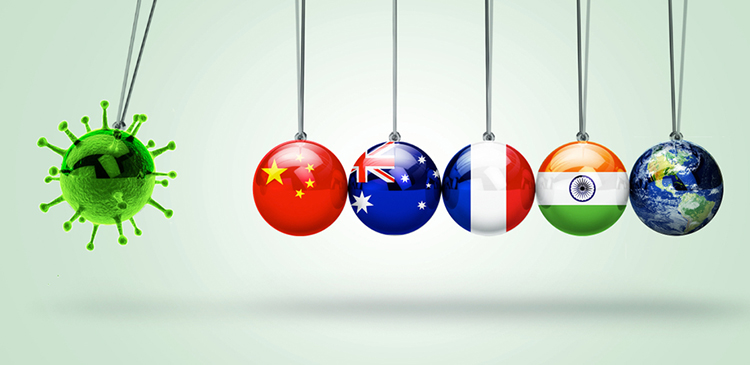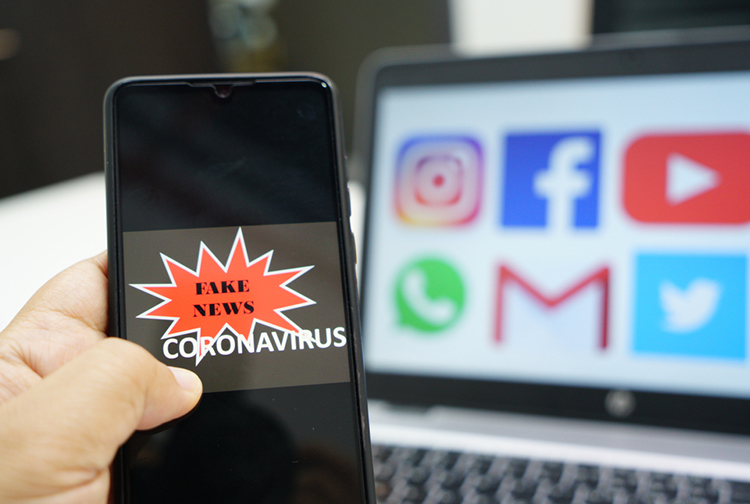With the coronavirus pushing the world into a seemingly endless state of distress, marketers of both big and small brands are confused. Several significant marketing events, like the IBM Think in San Francisco and Adobe Summit, have been canceled, forcing these brands to suddenly re-strategize. Sporting competitions, political events, and social gatherings that were all supposed to be huge marketing events this year have been canceled or postponed, inviting huge losses for marketers. Even smaller trade shows and product fairs could not survive the brunt of government-mandated lockdowns and curfews.
On top of event cancellations, several companies have had to make budget cuts to cope with reduced sales during lockdowns and curfews. Due to reduced marketing budgets, marketers have had to struggle with physical campaigns such as billboards and photoshoots as well.
However, regardless of these hardships, no marketer can completely withdraw their brand from the market. To ensure their continued presence in the market, brands are continuing with their marketing efforts, although in a subtle and more considerate fashion.

Adapting to Changing Emotions: The Marketers’ Guide
The COVID-19 crisis is subject to rapid change. People are anxious, panicked, and helpless about different implications of the outbreak. The world is fragmented, and the only thing connecting us all is our shared need for comfort, empathy, and compassion. At this time, brands need to adapt and understand customer emotions before launching a marketing campaign.
Remember that spending has slowed down, and very few of your clients will be interested in purchasing from you right now. While the primary purpose of marketing is to gain valuable leads, now is not the time to be aggressive and tone-deaf. Every marketing message you send at this time must be tailored to your client’s problems concerning the ongoing healthcare crisis. Several brands have presented an excellent example of adaptation to the coronavirus. KFC started emphasizing less on its slogan “finger-lickin’ good,” while Hershey canceled an advertisement showing people hugging and kissing each other. Similarly, Cadbury withdrew an ad that displayed grandparents sending their kids on Easter egg hunts, since such social gatherings are no more possible.
If there’s anything you can learn from these brands, it is the art of social listening. Being willfully ignorant of your customer’s moods will make you produce insensitive campaigns that end up being criticized and attract negative attention to your brand.
Considerate and empathetic marketing messages that show your brand’s humane side are less likely to attract condemnation from customers. If you cannot understand how to tailor your marketing messages to your customer’s current feelings, problems, and requirements, the following tips will help you.

- Step Back a Little
The entire world is devastated and fragmented right now. There seems to be no semblance of order, even in the strongest of economies. As news about the deadly virus bombards everyone from all sources, your customers might be anxious too.
As a marketer, you might think that appearing orderly to your customers might be the best way forward, but that is not true. Remember that if you continue with your usual marketing ways and push products regardless of the coronavirus outbreak, you might appear fake and shallow to consumers.
While that is not to say that you should disappear entirely from the market, taking a step back in your advertising campaigns might be a good idea. You can devise other ways to remain visible as a brand instead of continuing with a grand marketing scheme of lead generation.
Make sure you do not glaze over the current happenings but appear accessible to your customers. A marketing scheme utterly oblivious to the outbreak will look like a cruel ploy for pushing products. Appearing commercially exploitative will also hurt your brand’s reputation and lend it a selfish voice.
Step back a little and reduce the aggressiveness with which you market your products and services. Remember, your messages should adapt to the ongoing crisis just as much as your brand should.
- Be Supportive to Existing Customers
Even your most loyal customers might not be able to buy from you at this time. This does not mean you should stop caring for them. Marketing messages that reflect reassurance from your brand go a long way in reinforcing the trust your existing customers have in your brand.
Give your customers respect and form marketing messages that address their requirements. Understand the problems they are facing, and if there are any services or guides you can offer through digital mediums, do not hold back. Offer innovative solutions and value-added services concerning the outbreak and its implications free of charge. You can also align your offers better to serve your customer’s needs better.
- Use the Correct Language
Regardless of their financial statuses, your clients are completely vulnerable in a pandemic-afflicted world. The nuances of your brand’s marketing messages are incredibly delicate. Something as minor as the wrong vocabulary can make you seem insensitive to leads and customers alike. Similarly, something that reflects panic and distress will damage customer’s trust in your company.
Your marketing messages should reflect your willingness to cooperate with governments to ensure appropriate social distancing, encourage your customers to stay home, show them that you care about employees, and display a commitment to overcoming the pandemic with them. Avoid using words like “killed”, “death”, and “panic”. You should avoid discount codes such as “COVID” and “CORONAVIRUS”, a mistake several brands have made.
If your brand is doing something charitable or helping healthcare workers, highlight such work in your marketing emails. For example, alcohol beverage companies like Diageo and AbInbev used their alcohol manufacturing capabilities to make hand sanitizers and communicated their decision to their loyal customers.
Eliminate any words or phrases that seem even slightly insensitive—alleviate anxiety by promoting positivity and authenticity.
By using the right language in your marketing messages, you can present an empathetic front and ensure a better brand-customer relationship.
As the economy experiences a recession and your clients become more worried, your brand needs to change its marketing tactics. Communicate with your customers using a gentle voice and project a compelling yet humane brand story. Remember, empathy will carry your brand’s voice through the pandemic and make it appear trustworthy.



